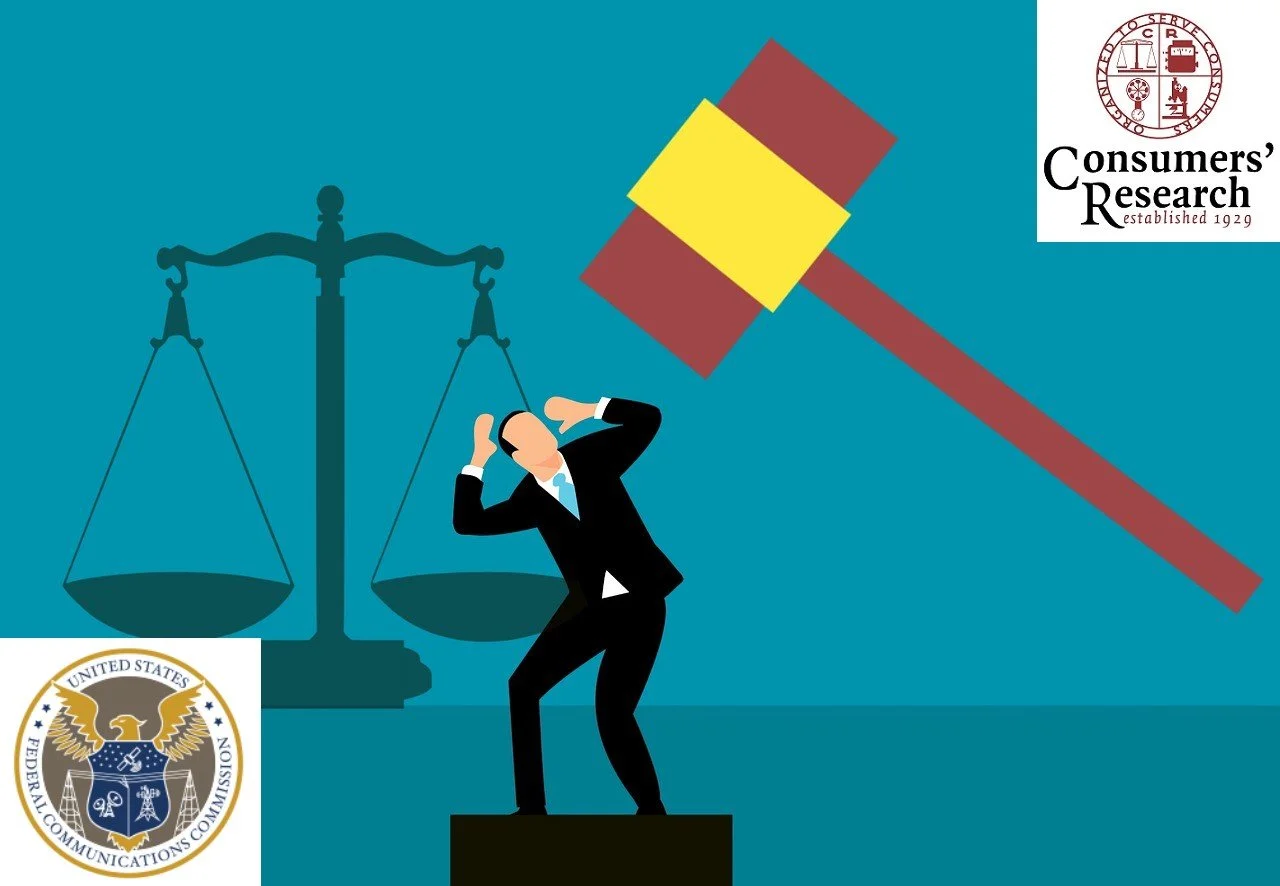Consumers’ Research Files Legal Challenge To USF Contribution Factor At The Fifth Circuit
UPDATE: Fifth Circuit Completely Rejects Consumers’ Research Non-Delegation Challenge To Universal Service Fund
March 24, 2023 – The U.S. Court of Appeals for the Fifth Circuit has denied the Consumers’ Research non-delegation doctrine challenge to the universal service fund and the way the USF is administered by the FCC.
UPDATE: Fifth Circuit Hears Oral Argument In Legal Challenge To USF Contributions – Consumers’ Research Moves Forward With Circuit Split Plot
December 5, 2022 – A three-judge panel of the U.S. Court of Appeals for the Fifth Circuit held an oral argument in Consumers’ Research v. FCC., a legal challenge to the Federal Communications Commission’s (FCC) actions approving the universal service fund (USF) contribution factor and the USF contribution factor for the first quarter of 2022. An audio recording of the oral argument is available online for listening or download.
UPDATE: FCC Files Opening Brief In Consumers’ Research Legal Challenge To USF Contributions
June 10, 2022 – The FCC has filed its opening brief in Consumers’ Research v. FCC, a legal challenge concerning USF contributions being heard by the U.S. Court Of Appeals For The Fifth Circuit.
January 5, 2022 – Consumers’ Research, Cause Based Commerce, Inc., and 11 individuals have filed a Petition For Review with the U.S. Court Of Appeals For The Fifth Circuit challenging the FCC’s approval of the universal service fund contribution factor for the first quarter of 2022.[1] They want the Court to declare the FCC’s actions and the 1Q USF contribution factor itself unlawful, and set them aside.
This same group filed comments and objections to the USF contribution factor with the FCC before and after the contribution factor was formally adopted by the FCC. The group also filed a Petition for Review with the Sixth Circuit challenging the FCC’s approval of the proposed fourth quarter 2021 USF contribution factor.[2]
In its most recent challenge, Consumers’ Research et al. claims the FCC’s approval of the 1Q USF contribution factor and the contribution factor itself “exceed the FCC’s statutory authority and violate the Constitution and other federal laws,” in the following ways:
(1) Congress’s standardless delegation to the FCC of legislative authority to raise and spend nearly unlimited money via the Universal Service Fund violates Article I, section 1 of the U.S. Constitution.
(2) To the extent Congress permitted the FCC to re-delegate (or de facto re-delegate) to a private company the authority to raise and spend nearly unlimited money via the Universal Service Fund, Congress unconstitutionally delegated its legislative power to a private entity—the Universal Service Administrative Company (“USAC”)—in contravention of Article I, section 1 of the Constitution.
(3) The revenues raised for the Universal Service Fund pursuant to 47 U.S.C. § 254 are taxes and therefore Congress’s standardless delegation to the FCC of authority to raise and spend nearly unlimited taxes violates Article I, section 8 of the U.S. Constitution.
(4) To the extent Congress permitted the FCC to re-delegate (or de facto re-delegate) to USAC the authority to raise and spend nearly unlimited taxes for FCC-defined “universal service,” Congress unconstitutionally delegated its taxing power to a private entity in contravention of Article I, section 8 of the Constitution.
(5) To the extent Congress did not to permit the FCC to delegate to a private company the authority to raise and spend nearly unlimited money for FCC-defined “universal service,” the FCC’s subsequent re-delegation to USAC is beyond the FCC’s lawful statutory authority, regardless of whether the charges are deemed to be “taxes.”
(6) If USAC is determined not to be a private entity, and to the extent Congress permitted the FCC Chair to appoint USAC board directors, Congress violated the Constitution’s Appointments Clause.
(7) To the extent Congress did not statutorily permit the FCC Chair to appoint USAC board directors, the FCC has acted in excess of its statutory authority in doing so.
(8) The USF Tax Factor is a binding legislative rule, but the FCC did not comply with the APA’s requirements for rulemaking, nor with the Federal Register Act’s requirements for publication.
(9) The FCC’s action and inaction are otherwise contrary to law.
**********
[1] Consumers’ Research, et al v. FCC, et al, Case: 22-60008, (5th Cir., filed Jan. 5, 2022), https://aboutblaw.com/08Y.
[2] Consumers’ Research, et al v. FCC, et al, Case No. 21-3886 (6th Cir., filed Sep. 30, 2021); Proposed Fourth Quarter 2021 Universal Service Contribution Factor, CC Docket No. 96-45, Public Notice, DA 21-1134 (Sep. 10, 2021), https://docs.fcc.gov/public/attachments/DA-21-1134A1.pdf.





